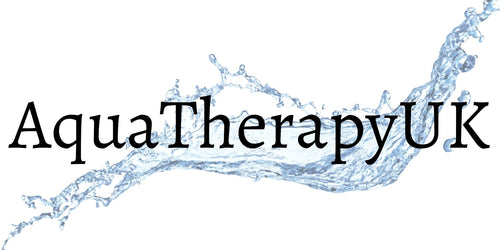The Gut-Mental Health Connection: Why It’s Making Headlines in 2025
Research on the connection between gut and mental health has expanded recently, with a notable uptick in 2024 and 2025. According to research, our gut microbiome has a significant impact on mental health outcomes, ranging from anxiety and depression to stress resilience and cognitive function. Personal health has become a global issue due to the COVID-19 epidemic. People's awareness of stress, inflammation, immunity, and general health increased. It naturally fits into this discussion because gut health is involved in immunological control and mental health. This isn't pseudoscience about wellbeing. Thanks to studies published in the Journal of Affective Disorders, Psychiatry Research, and Nature Mental Health, this clinical research field is expanding quickly. Let's examine the new, what we already know, and what it means for our mental health strategies.
The Gut-Brain Axis: A Two-Way Communication
The gut-brain axis is a communication network connecting the gut and brain. This system facilitates continuous communication between the brain and the digestive tract by involving the vagus nerve, neurotransmitters, and immunological pathways. A key player in this relationship is the gut microbiome, which comprises billions of bacteria, viruses, and fungi. Behaviour and brain function may be affected by disturbances in this microbial ecosystem. The intricate communication network known as the "gut-brain axis" connects our central nervous and digestive systems, and it may impact anything from mood and anxiety to cognitive performance. Let's investigate this relationship, examine the most recent findings, and comprehend why public interest in this topic is rapidly increasing.
Understanding the Gut-Brain Connection
The gut-brain axis consists of bidirectional communication pathways that include:
1. The Vagus Nerve: This cranial nerve transmits messages in both directions and acts as a direct physical link between the gut and the brain.
2. Neurotransmitters: The gut produces approximately 95% of the body's serotonin, also known as the "happiness hormone," which is essential for mood regulation.
3. The Microbiome: Through various processes, such as metabolite creation and immune response modulation, the billions of microorganisms that reside in our digestive tract impact brain function.
4. Inflammation Pathways: Inflammation in the gut can lead to systemic inflammation, which may impact mental health and brain function.
Key Clinical Findings and Recent Data
The recent surge in studies has produced some compelling results:
- According to a 2024 study published in Nature Mental Health, resilient people to stress have unique gut microbiome profiles, including higher concentrations of the anti-inflammatory bacteria Faecalibacterium and Coprococcus [1].
- Within two weeks, a daily multi-strain probiotic supplement dramatically decreased anxiety, exhaustion, and depressive moods, according to a Leiden University experiment from 2025 [2].
- Increasing dietary fibre consumption during pregnancy and after giving birth is linked to a decreased incidence of postpartum depression and anxiety, according to a 2023 meta-analysis of 13 randomised controlled studies [3].
Microbiome's Role in Mental Health
Microbiome
The trillions of bacteria, fungi, and viruses in your digestive tract make up your gut microbiome. These microorganisms are essential for:
- Creating neurotransmitters (the stomach produces 90–95% of serotonin)
- Controlling the inflammation
- Managing stress reactions
- Affecting mental processes like concentration and memory
Anxiety, depression, neurodegenerative diseases, and inadequate stress management have all been connected to dysbiosis or disruptions of the microbiome.
Depression and Anxiety
Research has found links between mental health conditions and the composition of the gut microbiome. For example, those who are depressed frequently have less microbial variety, but people who are anxious could have a lot of pro-inflammatory microorganisms. These microbial imbalances may impact the synthesis of neurotransmitters essential for mood control, including dopamine and serotonin [4].
Stress Resilience
Research indicates that the gut microbiome influences stress responses. A study published in Nature Mental Health found distinct microbial patterns in individuals exhibiting high resilience to stress, suggesting that certain gut bacteria may bolster psychological resilience [5].

Inflammation and Immune Regulation
Systemic inflammation and increased intestinal permeability, which are linked to neuroinflammation, anxiety, and depression, can be brought on by dysbiosis. It is now recognised that a major factor influencing mood is chronic low-grade inflammation [6].
Neurodevelopmental Conditions
There is growing evidence that the composition of the gut microbiota is related to neurodevelopmental disorders, including autism spectrum disorder (ASD). Compared to their neurotypical peers, children with ASD frequently exhibit altered bacterial profiles and decreased microbial diversity. Probiotics and faecal microbiota transplantation are two gut-targeted therapies that have shown early promise in reducing gastrointestinal and behavioural problems. The management of ASD symptoms may benefit from microbiota-targeted treatments, according to a 2022 meta-analysis published in Nutrients that discovered consistent microbial changes in ASD across 18 research, especially involving Bacteroides, Clostridium, and Lactobacillus species [7].
Neurodegenerative Disorders
The onset and course of illnesses, including Parkinson's and Alzheimer's, are also linked to the gut microbiota. Aggregates of misfolded alpha-synuclein have been seen in the ENS before reaching the brain in Parkinson's disease. Dysbiosis facilitates this process by promoting the buildup of misfolded proteins and subsequent transport to the brain [8].
Cognitive Function and Neuroprotection
Techniques for restoring a healthy gut microbial balance, such as dietary interventions high in fibre and prebiotics, may promote the growth of beneficial bacteria species that produce neuroprotective chemicals. These compounds, which include SCFAs and other bioactive molecules, may help maintain brain health, delay the onset of neurodegenerative diseases, and retain cognitive function [9].
Therapeutic Approaches: Targeting the Gut to Heal the Mind
Probiotics: A Potential Mood Enhancer
Recent clinical studies have examined the impact of probiotics on mental health. Numerous studies have shown that probiotics can elevate mood, though individual results may differ. These findings suggest that probiotics may influence mood through similar pathways to traditional antidepressants, such as the vagus nerve and anti-inflammatory reactions. The specificity of strains, dosage, and individual microbiome changes are significant. Experts advise against using probiotic supplements in place of other evidence-based mental health treatments but rather in addition to them [10].

Strains that have been shown to improve mood include:
- R0052 Lactobacillus helveticus
- Longum Bifidobacterium R0175
- Plantarum Lactobacillus P8
Prebiotics: Feeding the Beneficial Bacteria
Non-digestible dietary fibres known as prebiotics promote the development and activity of good gut bacteria, including Lactobacillus and Bifidobacterium species. Common prebiotics include fructo-oligosaccharides (FOS), galacto-oligosaccharides (GOS), and inulin. In a randomised controlled experiment the effect of galacto-oligosaccharides (GOS) was observed in the gut-brain axis of young girls. The study discovered that GOS supplementation positively impacted gut microbiota composition and enhanced anxiety-related metrics. These findings imply that prebiotics like GOS may, particularly in younger populations, aid in mood regulation through gut-brain connections [11].
Synbiotics: Combining Probiotics and Prebiotics
Probiotics (living beneficial microorganisms) and prebiotics (their fuel supply) are combined in synbiotic formulations to improve probiotics' ability to survive, colonise, and operate in the gut. In a study, they examined the development of synbiotics as modulators of the gut-brain axis. They discussed the historical application of synbiotics, the available clinical data demonstrating their beneficial effects on mental health, and the prospects for customised psychobiotic treatments in the future. The authors highlight synbiotics as a promising and emerging method for gut microbiome modification to regulate anxiety and mood [12].
Fecal Microbiota Transplantation (FMT)
Transferring stool from a healthy donor into the recipient's gut to reestablish a balanced microbiome is known as faecal microbiota transplantation (FMT).
Although FMT is mainly used to treat recurrent Clostridium difficile infections, new research indicates that it can also help mental health symptoms like anxiety, depression, and behaviours associated with autism.
With increasing interest in its potential psychiatric uses, recent research indicates that FMT may influence the gut-brain axis by lowering gut inflammation and reestablishing microbial diversity [13].
Dietary Interventions and Mental Wellbeing
The gut microbiome is significantly impacted by diet. Fruits, vegetables, legumes, and whole grains are fibre-rich foods that encourage the growth of good bacteria. Increased fibre consumption increases the diversity of gut bacteria. Probiotic-rich fermented foods also have a beneficial effect. Eating foods like yoghurt, kimchi, and miso has been associated with fewer feelings of depression and anxiety, possibly through affecting the production of neurotransmitters and stress-related brain processes [14].

Omega-3 Fatty Acids: These essential fats influence both gut and brain health
Polyphenols: Found in colourful fruits, vegetables, tea, and dark chocolate
Zinc and Vitamin D: Both nutrients impact gut barrier integrity and mental health
Current Challenges and Limitations
Human Microbiomes Are Highly Individual
Every individual has a unique gut microbiota. Massive variability is caused by various factors, including genetics, early childhood exposures, nutrition, drugs, and environment. This makes it challenging to generalise results from small sample research or to develop suggestions that are appropriate for everyone. For instance, because different people have distinct microbial ecosystems, a probiotic that helps one person feel less anxious could not help another.
Causation vs. Correlation
Although few studies prove direct causality, many show links between mental health disorders and abnormalities in the microbiome. if gut alterations cause mood disorders or if mental health conditions change, the gut environment is still up for dispute. To definitively unravel this link, longitudinal human experiments are required.
Inconsistent Probiotic Research
Research on the effects of certain probiotic strains on stress and mood has yielded conflicting findings. It is challenging to draw generalisations due to variations in strains, doses, treatment durations, and study methodologies. Probiotics differ from one another; strain specificity is important.
Lack of Large-Scale, Long-Term Human Trials
Most existing data comes from:
- Animal studies
- Small human trials
- Short-term interventions
Large, controlled, long-term studies in diverse populations are critical to validating and refining current findings.
Future Directions
Despite limitations, gut-brain research is advancing fast. Key areas to watch:
Personalised Microbiome-Based Therapies
Anticipate AI-powered microbiome mapping services, customised probiotic therapies, and precision nutrition based on your gut profile.
Psychobiotics: Next-Gen Mood Support
These probiotics or prebiotics are designed to address mood disorders by altering gut bacteria that affect brain chemistry. Early findings are encouraging; in short trials, several strains have been shown to lessen symptoms of depression and anxiety.
Gut-Brain Biomarkers
Researchers are looking into gut chemicals and microbial signatures that can identify mental health issues before symptoms show up, which might revolutionise early intervention techniques.
Implications for Mental Health Strategies
The emerging field of nutritional psychiatry emphasises the emerging area of nutritional psychiatritional therapy may benefit from adding gut-friendly meals and probiotic supplements. Before beginning a new supplement regimen or making major dietary changes, it is imperative to speak with medical professionals.
Integrated Lifestyle Approaches
The future of mental health care may involve personalised combinations of:
- Microbiome support (diet, prebiotics, probiotics)
- Stress management techniques
- Cognitive therapies
- Physical activity
all designed to support both the gut and the brain.
Conclusion
Acknowledging the whole-body aspect of psychological wellbeing and broadening our treatment toolset, the gut-brain axis signifies a paradigm change in our understanding of mental health. Integrative therapies that target gut and brain function give people with mental health issues fresh hope as research on these links continues to confirm them. This new area of study highlights the need to consider digestive health when evaluating mental health and investigating gut-directed therapies in addition to conventional methods. Promoting gut health via nutrition, lifestyle, and specific supplements may give people more ways to enhance their mental health.
Even while there is still much to learn, the evidence currently available indicates that the ancient knowledge linking gut health and mental health, which is present in traditional medical systems across the globe, contains important truths that are now being confirmed by contemporary science. A more comprehensive understanding of mental health is emerging as we continue to uncover the mysteries surrounding the gut-brain axis. This understanding acknowledges the complex relationships between our "two brains" and the trillions of microorganisms that assist in regulating their function.
References
1. An, E., Delgadillo, D.R., Yang, J. et al. Stress-resilience impacts psychological wellbeing as evidenced by brain–gut microbiome interactions. Nat. Mental Health 2, 935–950 (2024). https://doi.org/10.1038/s44220-024-00266-6
2. https://nypost.com/2025/04/25/health/supplement-can-reduce-bad-moods-in-just-2-weeks-new-study/
3. https://www.dailytelegraph.com.au/lifestyle/pregnancy-diet-womens-mental-health-postnatal-fibre/news-story/c4eba8e9b990a29538a4f8db6e875f23
4. Shaikh RG, Dey A, Singh VP, Khandagle A, M B, Naik S, Hasan A. Understanding the Impact of the Gut Microbiome on Mental Health: A Systematic Review. Cureus. 2025 Jan 27;17(1):e78100. doi: 10.7759/cureus.78100. PMID: 40018491; PMCID: PMC11865252.
5. Clapp M, Aurora N, Herrera L, Bhatia M, Wilen E, Wakefield S. Gut microbiota's effect on mental health: The gut-brain axis. Clin Pract. 2017 Sep 15;7(4):987. doi: 10.4081/cp.2017.987. PMID: 29071061; PMCID: PMC5641835.
6. Chang, T., Davis, M. M., Kusunoki, Y., Ela, E. J., Hall, K. S., & Barber, J. S. (2015). Sexual Behavior and Contraceptive Use among 18- to 19-Year-Old Adolescent Women by Weight Status: A Longitudinal Analysis. The Journal of pediatrics, 167(3), 586–592. https://doi.org/10.1016/j.jpeds.2015.05.038
7. Schömig C, Oberholz L, Fink G, Voggel J, Wohlfarth M, Dötsch J, Nüsken K-D, Nüsken E. Hippocampal mTOR Dysregulation and Morphological Changes in Male Rats after Fetal Growth Restriction. Nutrients. 2022; 14(3):451. https://doi.org/10.3390/nu14030451
8. Gut microbiota are related to Parkinson's disease and clinical phenotype. Scheperjans F, Aho V, Pereira PA, et al. Mov Disord. 2015;30:350–358. doi: 10.1002/mds.26069.
9. Modulating gut microbiota: An emerging approach in the prevention and treatment of multiple sclerosis. Ullah H, Tovchiga O, Daglia M, Khan H. Curr Neuropharmacol. 2021;19:1966–1983. doi: 10.2174/1570159X19666210217084827.
10. Nikolova, V., Zaidi, S. Y., Young, A. H., Cleare, A. J., & Stone, J. M. (2019). Gut feeling: Randomised controlled trials of probiotics for the treatment of clinical depression: Systematic review and meta-analysis. Therapeutic advances in psychopharmacology, 9, 2045125319859963.
11. Freijy, T. M., Cribb, L., Oliver, G., Metri, N. J., Opie, R. S., Jacka, F. N., ... & Sarris, J. (2023). Effects of a high-prebiotic diet versus probiotic supplements versus synbiotics on adult mental health: The “Gut Feelings” randomised controlled trial. Frontiers in neuroscience, 16, 1097278.
12. Abdelkawi, A., Martinez, J. P. P., Pathak, S., & Pathak, Y. (2023). Synbiotics: Traditional Approach, Present Status, and Future Outlook. In Anxiety, Gut Microbiome, and Nutraceuticals (pp. 333-344). CRC Press.
13. Chinna Meyyappan, A., Forth, E., Wallace, C.J.K. et al. Effect of fecal microbiota transplant on symptoms of psychiatric disorders: a systematic review. BMC Psychiatry 20, 299 (2020). https://doi.org/10.1186/s12888-020-02654-5
14. https://www.businessinsider.com/gut-health-boost-overall-digestion-better-moods-2024-7







